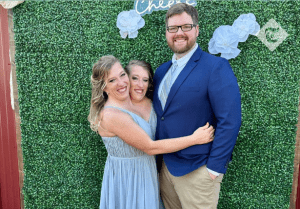

– Missing Indigenous women Oregon report
– Native American women emergency missing.
Accident – Death – Obituary News :
Carolyn DeFord’s Quest for Answers
Carolyn DeFord has been searching for her missing mother, Leona Kinsey, for 24 years. On Feb. 18, 2019, DeFord made a significant journey from central Washington to Oregon to testify at the state Capitol. The purpose of her testimony was to support a groundbreaking bill that aimed to address the crisis of missing Native American women in Oregon. As a member of the Puyallup Tribe of Indians, DeFord saw this bill as an opportunity for real change.
The bill, sponsored by Rep. Tawna Sanchez, was the first of its kind in Oregon. It sought to declare missing Native American women a statewide emergency, initiate an investigation into the issue, and generate a report to unravel the underlying causes of the problem. DeFord shared her mother’s story during her testimony – how Leona disappeared without a trace from her home in La Grande, Oregon, in 1998. Despite nearly 25 years passing, Leona’s whereabouts remain unknown, and no arrests have been made in connection with her case.
The Pursuit of Progress
While the bill passed in 2019, DeFord’s hopes for significant change have not materialized. State and federal reports have examined the issue of missing and murdered Indigenous people, proposed improvements, and held public events, but progress has been slow. Key leaders, including Oregon Governor Tina Kotek, have shown a lack of engagement with the recommendations outlined in the reports.
Despite the declaration of a “statewide emergency,” progress has been hindered by the COVID-19 pandemic, which disrupted planned efforts to address the crisis. There is still a lack of a centralized system for data sharing and coordination between law enforcement agencies, leading to a disconnect between tribal communities and law enforcement.
A Call for Action
Desiree Coyote, an advocate for missing and murdered Indigenous persons, expressed disappointment in the slow pace of change. She highlighted the ongoing invisibility of Indigenous communities in systemic efforts and emphasized the need for greater inclusion and collaboration.
Rep. Sanchez also voiced her frustration with the lack of concrete progress and is considering proposing new legislation to advance efforts to improve data collection and coordination. She acknowledged the deep-rooted systemic issues of racism and oppression that must be addressed to tackle the crisis effectively.
Understanding the Crisis
Over the past decade, there has been a growing awareness of the crisis of missing and murdered Indigenous people, particularly women. Nationally, thousands of cases of unsolved missing and murdered Indigenous people have been reported. Homicide ranks among the top 10 causes of death for Indigenous females aged 1 to 45.
Oregon’s legislation aimed to enhance protective, investigative, and responsive resources for missing and murdered Indigenous women in the state. The report generated from the bill highlighted the need for collaboration between law enforcement agencies, cultural education for officers, and improved data collection and sharing.
Challenges in Data Collection
One of the major obstacles identified in addressing the crisis is the lack of consistent and centralized data on missing Indigenous people. In Oregon, poor data collection methods make it difficult to quantify the extent of the problem accurately. Racial misclassification of Indigenous individuals further complicates data accuracy and hampers investigative efforts.
Efforts to improve data gathering and coordination have been initiated, including the appointment of a tribal liaison within the Oregon State Police. Training programs on working with tribal populations have also been implemented to enhance officer awareness and responsiveness.
The Quest for Trust
A significant challenge in addressing missing and murdered Indigenous persons cases is the deep-rooted distrust between Indigenous communities and law enforcement. This distrust hampers reporting processes and investigative responses, leaving families to rely primarily on community support in search efforts.
Advocates stress the importance of community-led efforts in addressing the crisis and call for greater inclusion of tribal advocates in decision-making processes. Building trust between law enforcement and Indigenous communities remains a critical aspect of addressing the crisis effectively.
Leona Kinsey’s Legacy
For Carolyn DeFord, the search for her missing mother, Leona Kinsey, has been a journey marked by advocacy, frustration, and resilience. Despite ongoing efforts to uncover the truth behind Leona’s disappearance, progress has been slow, and answers remain elusive.
DeFord’s story is a poignant reminder of the challenges faced by families of missing Indigenous persons and the need for systemic change to address the crisis effectively. As advocates and lawmakers continue to push for progress, the quest for justice and closure for families like DeFord’s remains a driving force in the fight against missing and murdered Indigenous people.
InvestigateWest is an independent news nonprofit dedicated to investigative journalism in the Pacific Northwest. For more information, contact Reporter Melanie Henshaw at melanieivwsalemreporter-com or (971) 258-1430.
STORY TIP OR IDEA? Send an email to Salem Reporter’s news team at news@salemreporter.com.
A MOMENT MORE, PLEASE – If you found this story useful, consider subscribing to Salem Reporter for more local news coverage. Your support helps fund the work of local journalists. Subscribe here.
.
– Missing Native American women emergency
– Progress limited in identifying missing Native American women.
A Teaspoon Before Bedtime Makes you Lose 32LBS in 2 Weeks.

Related Post : Remember Tiger Wood's Ex Wife, Elin Nordegren ? Take a Look at Her Now.

The Conjoined Twins Abby & Brittany Hensel are No Longer Together.





